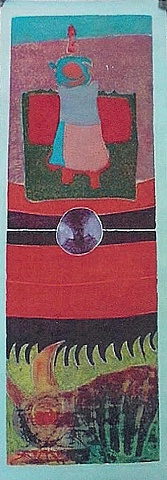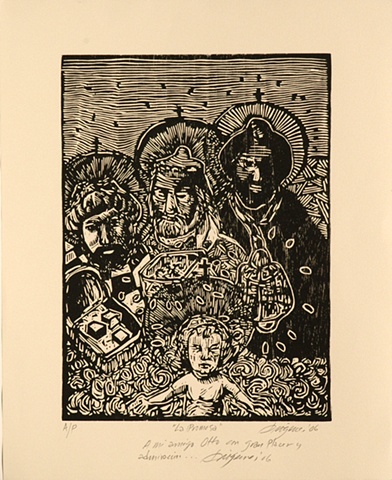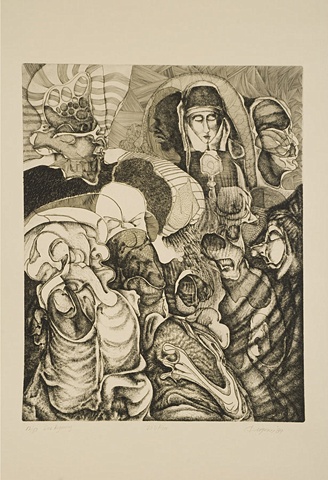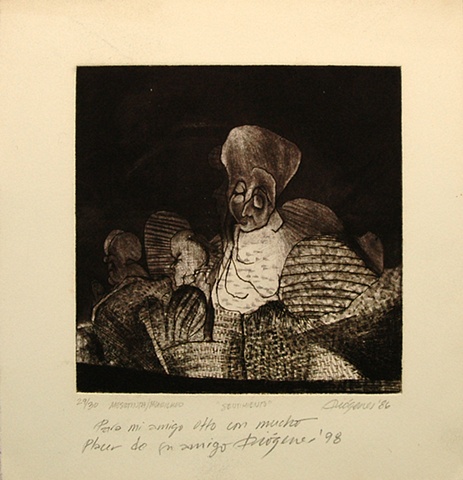Ballester, Diógenes
Diógenes Ballester, (Ponce, P.R., 1956)
Pintor, artista gráfico y profesor. Estudió bajo la tutela de Adrián Nelson, Basilia Goglas, René Taylor y Margarita Balmaceda, en la Escuela de Artes Visuales Miguel Pou de Ponce. Estudió también en la Universidad Católica de Ponce, donde fundó la Galería de arte Aballarde. En 1981 estudió grabado en el Printmaking Workshop en Nueva York y en 1983 fue becado para hacer una maestría en la Universidad de Wisconsin. Desde 1987 vive en Nueva York y ha enseñado pintura y grabado en Cooper Union for the Advancement of Science and Art y Parsons School of Design. En 1999 fue becado por la Fundación Alfonso Arana para estudiar en París. Ha servido de jurado para diversos eventos internacionales. Su obra combina elementos y formas orgánicas en un lenguaje simbólico relacionado con el sincretismo y nutrido con referencias de la historia, la mitología, los rituales espirituales y espiritistas, la memoria individual y colectiva, la tradición oral y la identidad caribeña.
Diógenes Ballester, (Ponce, P.R., 1956)
Painter, graphic artist and professor. He has studied under the guidance of Adrián Nelson, Basilia Goglas, René Taylor, and Margarita Balmaceda at the Miguel Pou Visual Arts School in Ponce. He also studied at the Catholic University in Ponce, where he founded the Aballarde Art Gallery. In 1981 he studied etching at the Printmaking Workshop in New York and in 1983 received a scholarship for master’s studies at the University of Wisconsin. He has lived in New York since 1987 and has taught painting and etching at Cooper Union for the Advancement of Science and Art and the Parsons School of Design. In 1999 he received a scholarship from the Alfonso Arana Foundation to study in Paris. He has been a judge at several international events. His work combines organic elements and shapes in a symbolic language related to syncretism and enriched by references to history, mythology, spiritual and espiritista rituals, individual and collective memory, oral tradition, and the Caribbean identity.



